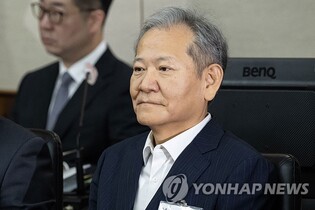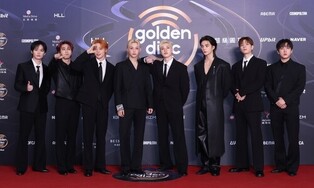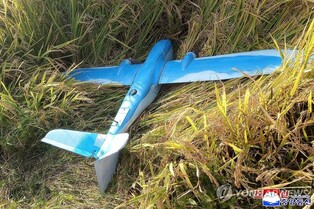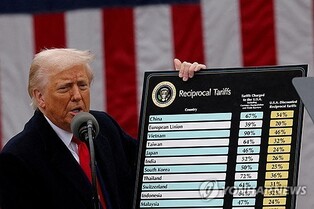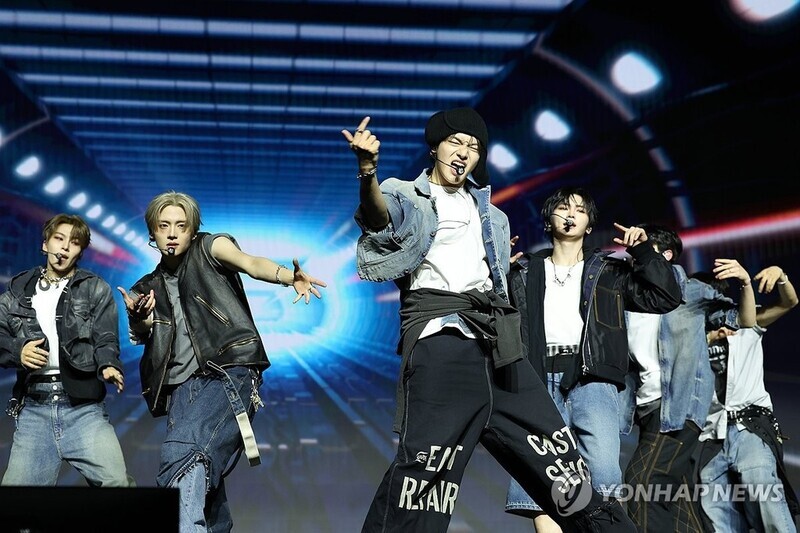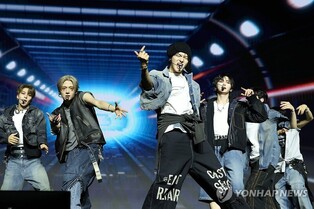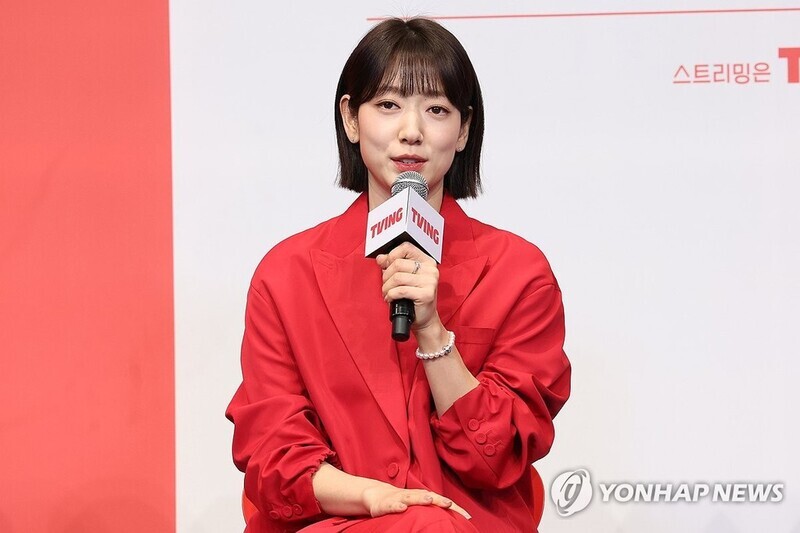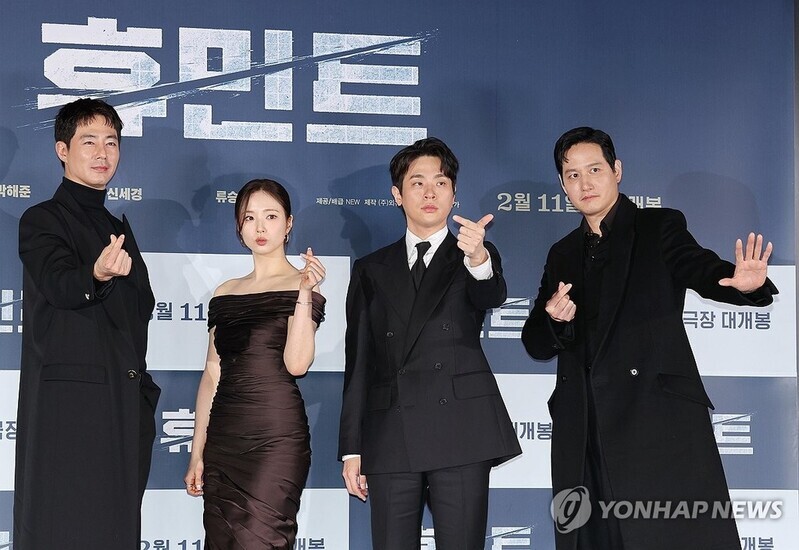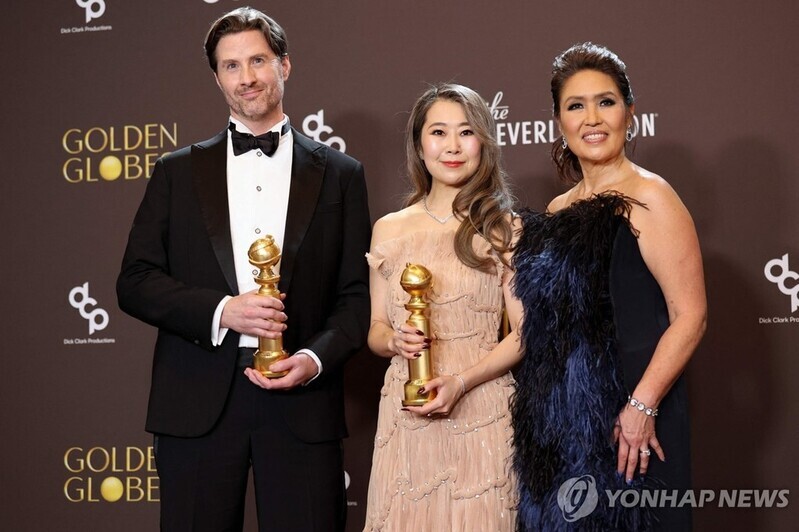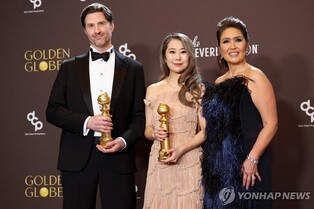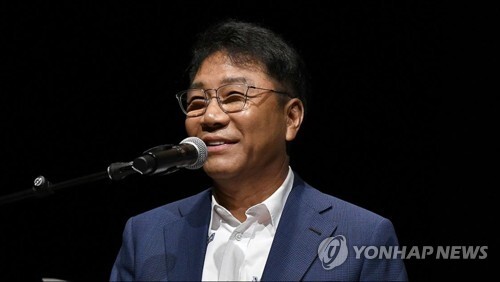 |
| ▲ This file photo shows Lee Soo-man, chief producer and founder of K-pop powerhouse SM Entertainment. (Yonhap) |
SEOUL, May 30 (Yonhap) -- Lee Soo-man, the founder of SM Entertainment, made a rare appearance at a domestic event following the acquisition battle for SM last year. During a copyright-related event, he predicted that the integration of K-pop and artificial intelligence (AI) will significantly enhance global fan communication.
In a special keynote speech at the International Confederation of Societies of Authors and Composers (CISAC) World Congress held at the Conrad Hotel in Yeouido, Seoul, on the 30th, Lee stated, "AI chatbots will soon become our best friends and even lovers." He further emphasized the importance of AI in connecting K-pop with its global fanbase.
"I am a believer in AI chatbots," Lee declared, describing the fusion of K-pop and AI as a long-discussed convergence of culture and technology. He noted that this integration foreshadows more extensive and intimate interactions between celebrities and their prosumer fans.
Lee elaborated, "AI and chatbot technology are revolutionizing the way creators and consumers interact at lightning speed. These technologies are now engaging human fans with realistic and even more attractive appearances and voices. They respond to fans' questions in real-time and begin to communicate with fans on behalf of creators."
Highlighting the transformative capabilities of AI in text generation, music composition, and image creation, Lee stressed the need for the content industry to rapidly adapt and develop competitive business models in response to evolving AI technologies.
Since last year's acquisition battle, Lee has focused on ESG (Environmental, Social, and Governance) activities primarily abroad. His appearance at the CISAC World Congress marks his first domestic engagement in approximately nine months since the 2023 East Asia Future Forum in August last year. Lee has also been actively preparing new initiatives, including applying for the A2O Entertainment trademark and organizing song camps.
Lee reflected on his journey, mentioning, "Though I started as a young idol singer, I was originally a science and engineering student with a love for computers and robotics. This passion led me to earn a master's degree in computer engineering. However, my greater love for music brought me back to becoming a singer, musician, and producer."
He reminisced about his early years, "Coming from a humble background, my parents couldn't oppose my singing career once I started earning a significant income as a successful singer."
Lee emphasized the importance of intellectual property rights in his career, saying, "In the process of singing, songwriting, producing, and establishing SM Entertainment, transforming the music industry into an industrial sector and globalizing the K-pop genre, intellectual property rights have been my most valuable asset."
He also pointed out the financial demands of producing K-pop, noting, "K-pop requires a relatively large initial investment by producers and takes several years to discover and nurture idol trainees before their debut. Copyrights protect the rights and material rewards of lyricists, composers, and singers, ensuring the sustainability of their activities."
Lee warned of potential issues arising from AI advancements, such as copyright infringement, illegal reproduction and distribution, plagiarism, and exposure of unprotected creative works, leading to economic losses for creators. He called for the establishment of clear copyright laws and the development and global standardization of anti-infringement technologies. Lee suggested issuing an ID, or 'real-name system,' for AI chatbots, avatars, and robots to address these concerns.
The CISAC World Congress, hosted by the Korea Music Copyright Association, convenes representatives from 225 copyright organizations across 116 countries to discuss key international copyright issues. This event marks the first CISAC General Assembly held in Seoul since 2004.
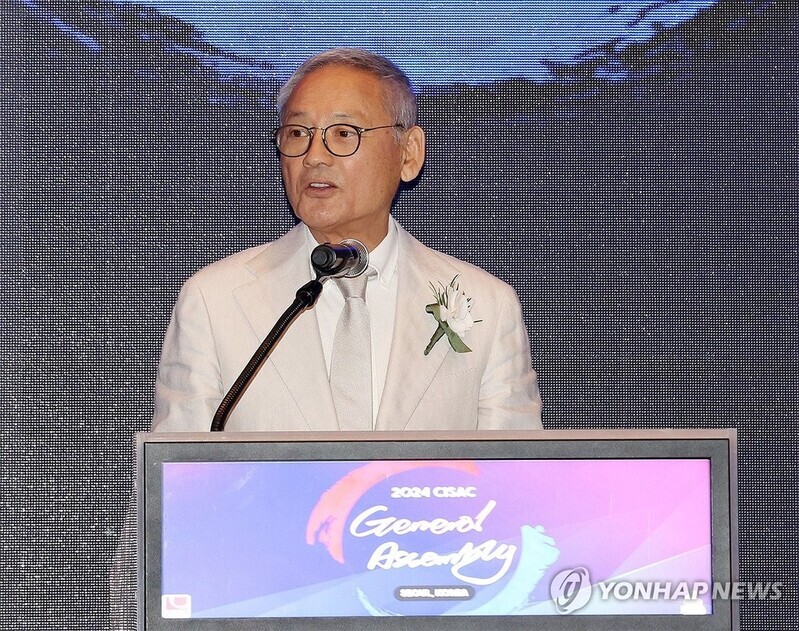 |
| ▲ South Korean culture minister Yoo In-chon delivers a congratulatory address at the International Confederation of Societies of Authors and Composers (CISAC) World Congress held at the Conrad Hotel in Yeouido, Seoul, on May 30, 2024. Founded in 1926, CISAC is the world's largest non-governmental organization for copyright, with 225 member societies from 116 countries and approximately 5 million creators across music, drama, literature, and other cultural and artistic fields participating as members. (Yonhap) |
Minister of Culture, Sports and Tourism Yoo In-chon recalled the past challenges, "In 2008, Korea was on the USTR's 'priority watch list' for copyright surveillance. I revised all related laws and established a special judicial police system at the Ministry of Culture, Sports, and Tourism to combat copyright violations. These efforts led to Korea being removed from the watch list on January 1, 2009."
Minister Yoo praised Korea's transformation into a copyright-respecting nation, "Korea is now a copyright-clean country. Over the past decade, our cultural exports, including K-pop, films, dramas, literature, art, music, and dance, have grown globally."
He highlighted the importance of global cooperation among copyright organizations in the digital era, with the rise of OTT services and AI advancements. The Korean government is committed to ensuring creators are transparently and fairly compensated by refining laws and systems.
CISAC President Björn Ulvaeus, a member of the renowned Swedish group ABBA, praised Korea's cultural influence, stating in a video message, "Korea is a cultural powerhouse, attracting praise and envy worldwide. Korea is drawing talent from other countries in K-pop songwriting and composing, providing diverse opportunities for creators."
(C) Yonhap News Agency. All Rights Reserved

















